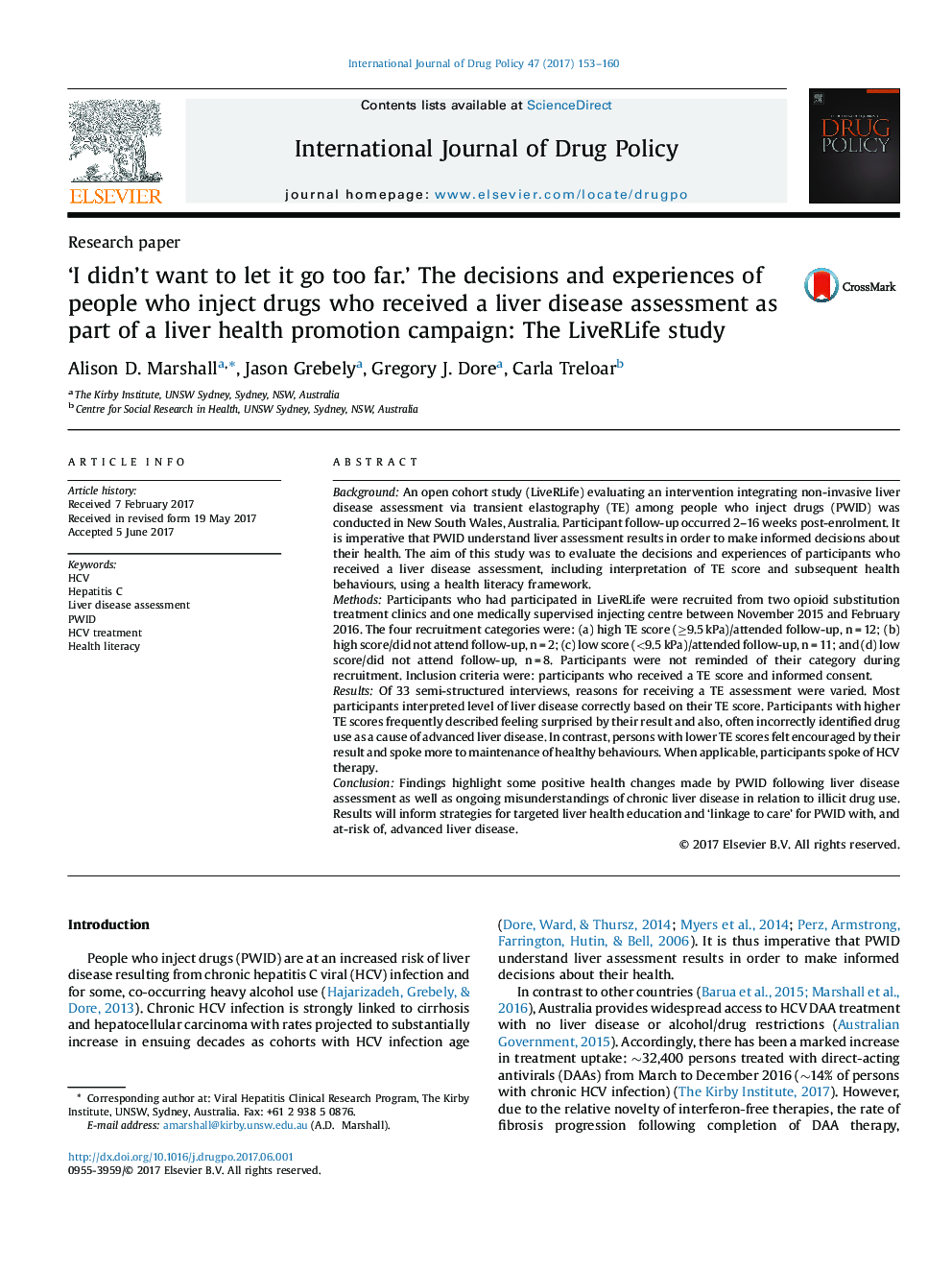| کد مقاله | کد نشریه | سال انتشار | مقاله انگلیسی | نسخه تمام متن |
|---|---|---|---|---|
| 5120811 | 1486258 | 2017 | 8 صفحه PDF | دانلود رایگان |

BackgroundAn open cohort study (LiveRLife) evaluating an intervention integrating non-invasive liver disease assessment via transient elastography (TE) among people who inject drugs (PWID) was conducted in New South Wales, Australia. Participant follow-up occurred 2-16 weeks post-enrolment. It is imperative that PWID understand liver assessment results in order to make informed decisions about their health. The aim of this study was to evaluate the decisions and experiences of participants who received a liver disease assessment, including interpretation of TE score and subsequent health behaviours, using a health literacy framework.MethodsParticipants who had participated in LiveRLife were recruited from two opioid substitution treatment clinics and one medically supervised injecting centre between November 2015 and February 2016. The four recruitment categories were: (a) high TE score (â¥9.5 kPa)/attended follow-up, n = 12; (b) high score/did not attend follow-up, n = 2; (c) low score (<9.5 kPa)/attended follow-up, n = 11; and (d) low score/did not attend follow-up, n = 8. Participants were not reminded of their category during recruitment. Inclusion criteria were: participants who received a TE score and informed consent.ResultsOf 33 semi-structured interviews, reasons for receiving a TE assessment were varied. Most participants interpreted level of liver disease correctly based on their TE score. Participants with higher TE scores frequently described feeling surprised by their result and also, often incorrectly identified drug use as a cause of advanced liver disease. In contrast, persons with lower TE scores felt encouraged by their result and spoke more to maintenance of healthy behaviours. When applicable, participants spoke of HCV therapy.ConclusionFindings highlight some positive health changes made by PWID following liver disease assessment as well as ongoing misunderstandings of chronic liver disease in relation to illicit drug use. Results will inform strategies for targeted liver health education and 'linkage to care' for PWID with, and at-risk of, advanced liver disease.
Journal: International Journal of Drug Policy - Volume 47, September 2017, Pages 153-160